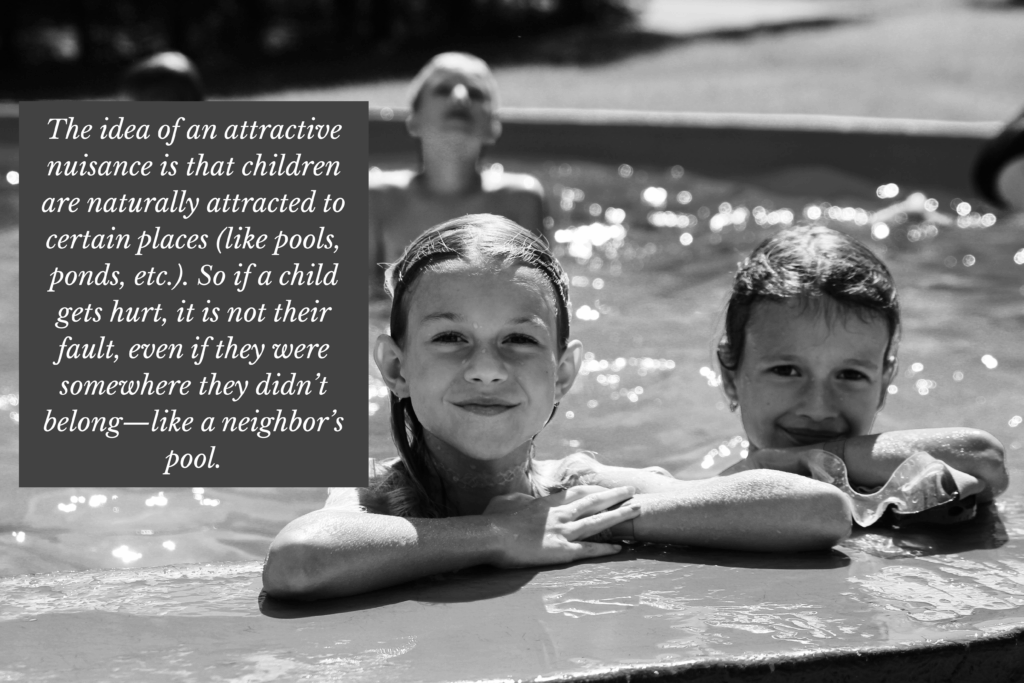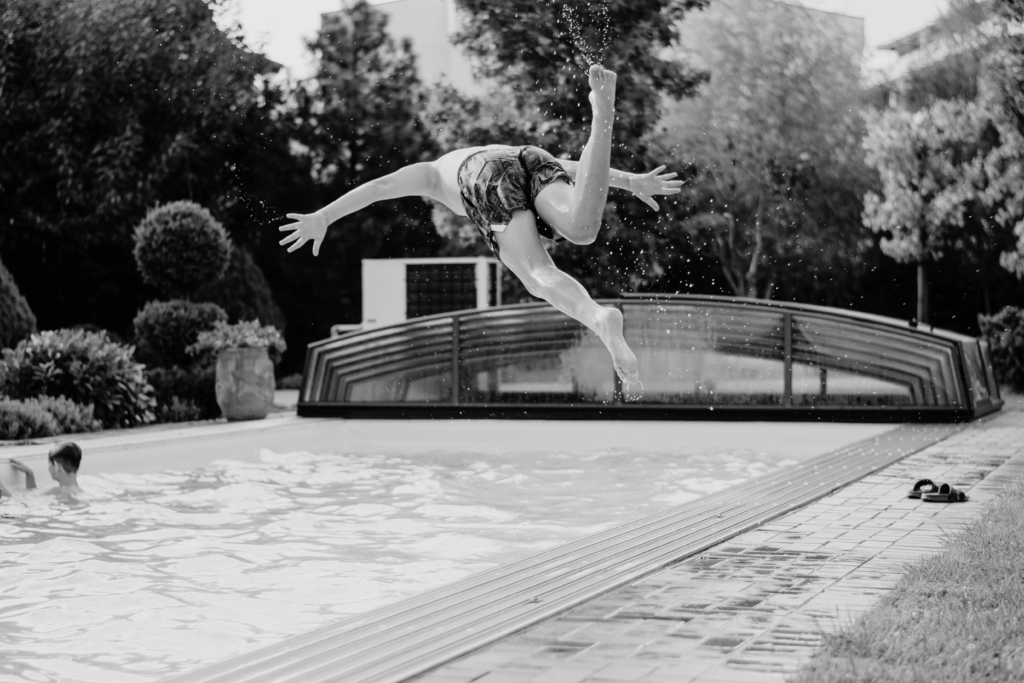Given the chance, kids will spend hours splashing and playing in a swimming pool. Unfortunately, along with all that fun, there’s risk. Swimming pool accidents are common, and statistics on children drowning in pools are alarming. For children aged 5 to 14, drowning is the second leading cause of unintentional injury death. And according to the CDC, in the past decade, New Mexico has had one of the highest drowning death rates in the country.
Who is responsible when a child is hurt or killed in a swimming pool accident? Pool accident liability is a matter of premises liability, which is a legal concept where the owner is responsible for personal injuries that occur on their property. The owners owe you compensation if your child is hurt in their pool.
Common Swimming Pool Injuries
In addition to the tragedy of drowning while swimming, kids can suffer a number of different injuries in and around pools, including:
- Cuts, bruises, or broken bones due to a slip and fall outside the pool
- Cuts, bruises, or broken bones from accidents in the water
- Spinal cord injuries from diving into shallow water
- Traumatic brain injuries from impact or near-drowning oxygen deprivation
- Electrocution
- Illness or infection due to pool chemicals or poor maintenance
The injuries resulting from swimming pool accidents can vary greatly. A child may have a minor bruise or laceration, or need medical attention for a broken bone or concussion. In the most serious cases, children may suffer permanent disability, paralysis, or even death.
Children can be particularly vulnerable to these injuries. They do not always understand the risks of horsing around with others or falling into water over their head if they can’t swim or tread water.
Pool Accident Liability
In situations such as car crashes, it can be difficult to prove who is at fault. But accidents on someone’s property are subject to premises liability. This means that the homeowner (or business owner and their staff) can be held liable for things that occur on the premises. The burden of proof for negligence is much lower because owners have a responsibility to keep their property safe.
Four things must be proven to find someone at fault under premises liability:
- As a property owner, the person had a duty of care to keep things safe and secure
- There was a breach of that duty of care
- The victim’s injury was directly related to the breach of duty
- The victim suffered damages due to the incident
So, a homeowner who does not take proper precautions to keep people from getting hurt can be found liable and must pay for the victim’s injuries.
When it comes to swimming pools, especially where children are concerned, keeping the premises safe may include:
- Fencing and locks to keep people out of the pool when the owner is not present
- Keeping steps, ladders, diving boards, etc., in good condition
- Alerting guests to dangers, for example, warning them not to run, dive, or jump in if it isn’t safe
- Maintaining safe and healthy water with chemicals to fight bacteria
- Never leaving children unsupervised in or around the pool

Kids and “Attractive Nuisances”
Homeowners can end up owing anyone damages in swimming pool accidents, but adults might share some of the responsibility for their injuries. New Mexico is a pure comparative negligence state, which means that a victim’s compensation could be reduced if they are partly to blame. So if an invited adult acts dangerously in the pool, or if someone trespasses on the property to use the pool, they will have a harder time claiming their injuries are the homeowner’s fault.
Children, however, are never considered at fault, and comparative negligence doesn’t apply to them. The homeowner is responsible for any child hurt in their pool. It doesn’t matter if they are invited to swim or if they enter the property without their permission. This is because of a concept called “attractive nuisance”.
The idea of an attractive nuisance is that children are naturally attracted to certain places (like pools, ponds, etc.). So if a child gets hurt, it is not their fault, even if they were somewhere they didn’t belong—like a neighbor’s pool. They are too young to understand what trespassing is, and don’t realize the dangers.
In New Mexico, the law doesn’t specify an age regarding attractive nuisances. Say a group of 16-year-olds climbs a fence or breaks a lock to get into a neighbor’s pool. They are old enough to understand that they are trespassing and will likely have a harder time making a case that the neighbor is liable for an injury. However, if a three-year-old wanders in and falls into the pool, premises liability and attractive nuisance laws are sure to apply.
Pool owners should always do everything they can to make their property as safe as possible. It is the best way to protect themselves from a lawsuit, and more importantly, from a tragedy from occurring. If they do not, or if injuries happen despite their precautions, their homeowner’s insurance should cover the victim’s compensation. Luckily, because of attractive nuisance laws, these insurance claims are rarely disputed.
Contact an Attorney for Swimming Pool Accidents
No one wants to take their friends or neighbors to court. But if your child is hurt in a neighbor’s pool, they deserve treatment, and that can cost a considerable amount of money.
People who decide to put in a pool are required to carry liability coverage as part of their homeowner’s insurance policy. They can also purchase an additional umbrella policy for accidents that might occur on their property.
While insurance companies may not dispute pool accident liability, it is still useful to have a personal injury attorney on your side. They have experience in calculating damages to include not only current medical bills but also the cost of any treatment that may be necessary in the future.
A lawyer also knows how to work with a Guardian ad Litem (GAL). A GAL is a court-appointed attorney whose job is to ensure that all cases involving minor victims are handled appropriately. If your child has been hurt or killed in a swimming pool accident, contact Kane Personal Injury. They will make sure you receive full and fair compensation on your child’s behalf so that you can concentrate on what’s most important—your child’s healing.
Please note that this article was created for advertisement purposes, and it does not constitute any contractual legal relationship, nor imply one.
